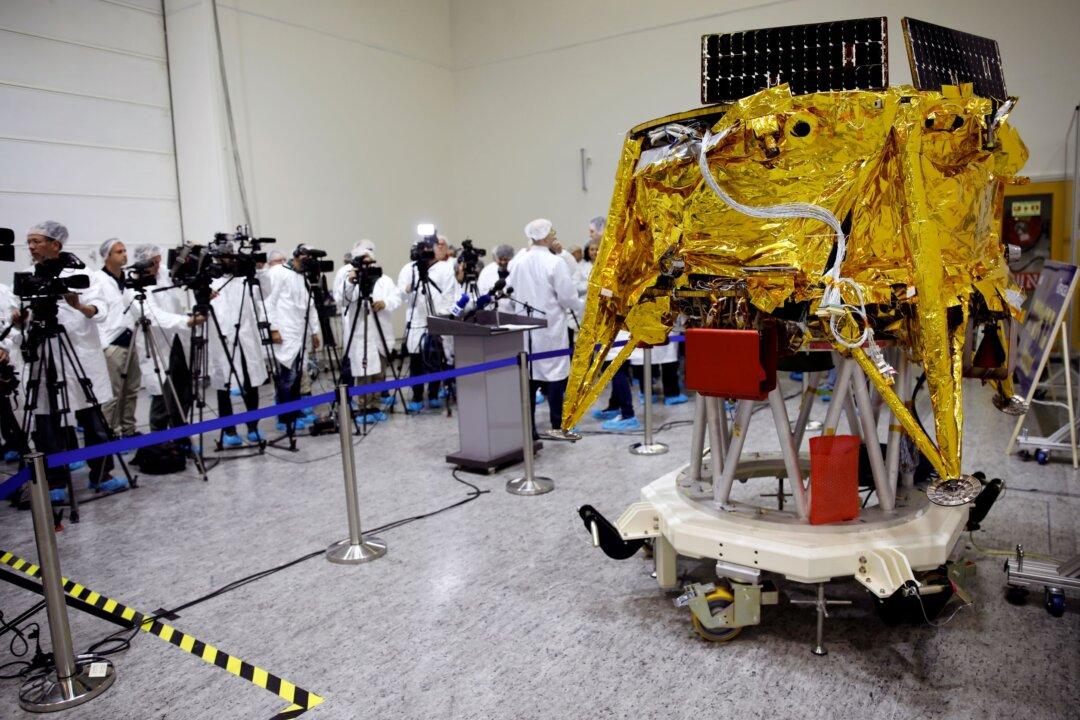JERUSALEM—An Israeli space group is on course to make its second attempt at an unmanned lunar landing in 2024 after securing $70 million in private funding for the mission.
The SpaceIL organisation said on Sunday that Patrick Drahi, a Franco-Israeli billionaire and controlling shareholder of Altice Europe, would donate the funds along with SpaceIL chairman Morris Kahn and South African businessman Martin Moshal.





